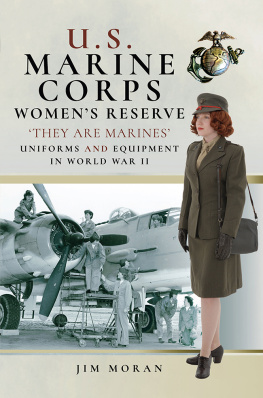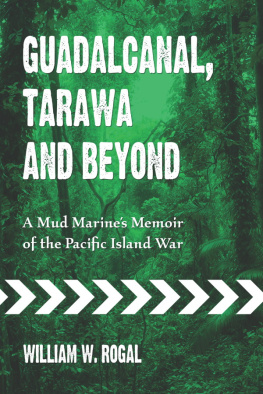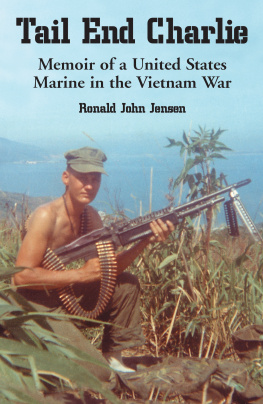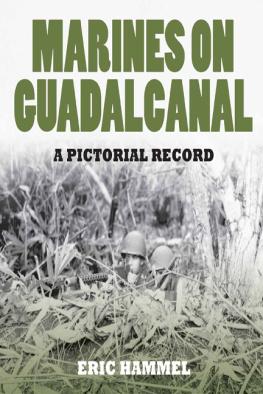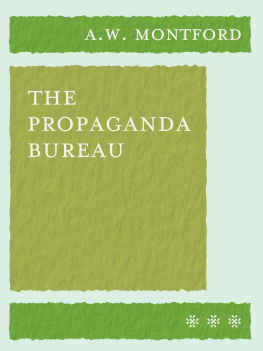2007 The University of North Carolina Press
All rights reserved
Set in Charter, Franklin Gothic, and Campaign types
by Tseng Information Systems, Inc.
Manufactured in the United States of America
This book was published with the assistance of the
Z. Smith Reynolds Fund of the University of North Carolina
Press.
The paper in this book meets the guidelines for
permanence and durability of the Committee on
Production Guidelines for Book Longevity
of the Council on Library Resources.
Library of Congress Cataloging-in-Publication Data
McLaurin, Melton Alonza.
The Marines of Montford Point : Americas first Black
Marines / Melton A. McLaurin.
p. cm.
Includes bibliographical references and index.
ISBN-13: 978-0-8078-3097-0 (cloth : alk. paper)
1. Montford Point Camp (Camp Lejeune, N.C.) 2. United
States. Marine CorpsAfrican AmericansHistory20th
century. 3. Camp Lejeune (N.C.)History20th century.
4. United StatesRace relationsHistory20th century.
I. Title.
VE23.M35 2007
359.9'608996073dc22
2006028179
11 10 09 08 07 5 4 3 2 1
Preface
This project began with a chance conversation in the spring of 1999 with Dr. Clarence Willie, Lieutenant Colonel, Retired, United States Marine Corps. After his career in the Marine Corps, Willie obtained a doctorate in education and, in 1999, was serving as assistant superintendent of schools in Brunswick County in southeastern North Carolina. A member of the history faculty at the University of North Carolina Wilmington who specialized in the American South and race relations, I was at the time associate vice chancellor for academic affairs. Willie asked me if I knew about the Montford Point Marines, and I responded that I was vaguely aware of them. Telling me that he had known several legendary Montford Point drill sergeants, Willie began to talk of his dream of bringing the Montford Point story to a larger audience.
As we talked, we realized that a number of circumstances might make a video documentary project possible. Willie had access to the Montford Point Marines Association, originally established as an organization for Marines who trained at Montford Point from 1942 until 1949, but now open to all active-duty military personnel and all honorably discharged veterans. The Montford Point Marines Museum, an arm of the association, is located at the site of the original Camp Montford Point on Camp Lejeune, forty miles up the road from Wilmington at Jacksonville. Both Jacksonville and Wilmington have active Montford Point Marines Association chapters, which meant that we could quickly identify interview subjects. The UNC Wilmington history department had established contact with Finney Greggs, First Sergeant, Retired, a Vietnam era career Marine who served as the extraordinarily cooperative volunteer director of the museum. The university had a professionally staffed television studio that had produced several documentaries. I knew the history of the segregated South, knew the resources of the university, and could speak to university administrators about at least beginning to record the story of the men who trained at Montford Point. All we had to do was coordinate the effort among the various institutions and obtain funding.
Throughout the project, the UNC Wilmington team worked closely with Greggs and the Montford Point Marines Museum. Greggs developed a list of Montford Point veterans in North Carolina and arranged to transport them to the UNC Wilmington Television studio for taping. He also arranged for a UNC Wilmington Television team to interview Montford Point veterans from across the country at the associations annual July national meeting in St. Louis in 2001 and Arlington, Virginia, in 2004. In 2005 the team traveled to Charleston, South Carolina; Charlotte, North Carolina; Washington, D.C.; and Montford Point to tape interviews arranged through Greggs. Working with Greggs, the team selected interviewees who had entered the Marine Corps in each of the years during which Camp Montford Point operated as a segregated training facility.
Funding for the interviews came primarily from various units within UNC Wilmington, especially the Office of the Chancellor; the Division of Public Service and Continuing Studies, in which UNC Wilmington Television is housed; and the Division of Academic Affairs. Additional interviews and transcription services were supported by the Department of the Navy, Office of Naval Research, through a grant to South Carolina State University.
Before the interview process began, I developed a list of fifteen basic questions used for each interview. The basic questions focused on the interviewees background, reasons for joining the Corps, boot camp and other training experiences, experiences with racism within the Corps and in the civilian world, assignments after boot camp, combat experience, and thoughts about having been a Montford Point Marine. The list contained suggested follow-up questions for several of the fifteen basic items, which could be used at the discretion of the interviewer. In addition, each interview was concluded by asking the subject to speak about whatever he wished. When possible, Willie conducted the interviews; otherwise, I did. Interview subjects did not see the list of questions prior to their interview session to ensure that we received candid responses. The entire UNC Wilmington Television team, especially Dustin Miller, Director, and Heidi Messina, Producer/Director I, devoted countless hours to the project, making every effort to help the Montford Point veterans feel at ease during the interview sessions.
At the end of the project we had interviewed sixty-one individuals, for a total of more than 2,800 minutes. This volume contains some of the best interview excerpts, arranged according to the topics addressed by the basic questions. It is difficult to say that the material included is the very best, because so much of the material is superb. Many of the interviewees had waited literally their entire lives to be able to tell their stories to someone, and the interview process proved to be both exhilarating and sobering for members of the team. In interview after interview, we heard powerful stories told with eloquence and dignity, with passion and pride. The stories that poured forth were the more poignant because we were acutely aware the interviewees understood that we were in a race against time to record their stories, and frequently told us so. Sadly, several of the men we were fortunate enough to meet and tape, and whose words are included in this volume, are no longer with us.
Each of the interview segments is taken from a transcript created by a professional transcription service. The words on the page are the words of the interviewee exactly as they appear in the transcript, with only minor exceptions. For the sole reason of making the work more readable, I have removed such obvious vocal distractions as um and ah, stammers, and words used to begin responses, such as okay and well, that are without significance to the meaning of the text. On a very few occasions, I have corrected spellings of place names that clearly resulted from the transcription process and that the reader might find confusingfor example, replacing Kenston with Kinston, the name of a town in eastern North Carolina. When an understanding of the text required the insertion of additional material, I inserted such material, never more than a few words, in square brackets. Most such occasions resulted from the lack of inflection, gestures, or facial expressions that make clear the meaning of the spoken word on the interview tape but do not translate to print. Otherwise, the words the reader reads are the words the Montford Point veterans spoke. The Montford Point veterans brought a wide range of social and educational backgrounds, experiences, and accomplishments to the interview sessions. To convey this diversity and to ensure that the individuality of each interviewee was respected, in no case was grammar or syntax altered, although I have, as helpful for reading, regularized punctuation and capitalization from the transcript to conform to customary usage. In making these minor editorial changes I hope I have made the volume more readable while preserving the authenticity and meaning of specific interview texts.


